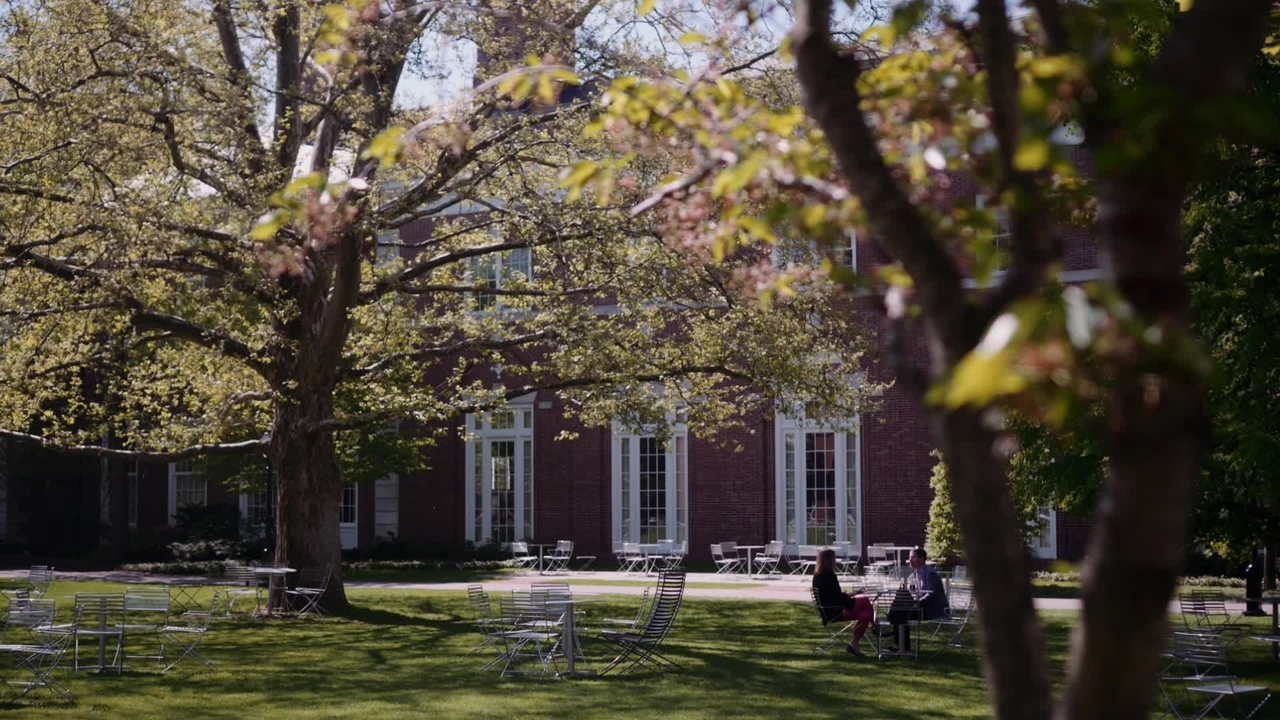Leadership is more than a role for Triston Francis – it’s integral to who he is. Student Body Co-President at Harvard Business School, a first-generation college graduate and one of the four students of his graduating class to be recognized for positively impacting the University of Pennsylvania’s Wharton School of Business, he’s distinguished himself in all his respective environments.
Francis strives to give back, such as through creating opportunities for other aspiring leaders through his involvement in Sponsorship for Educational Opportunity (SEO) and sharing his story and inspiring students as the Penn Alumni Interview Co-Chair.
But Francis’s accomplishments belie his initial struggle. Until eighth grade, he was on the verge of being held back and his mother begged for “his admittance into the private school his older brother attended,” as Greg Hill, host of the “Minority Trailblazer Podcast,” described. That’s why he now encourages students and people from under-served backgrounds to be aware of opportunities, cultivate a growth mindset from early on and realize their fullest potential.
What follows below is our interview conducted November 2018 via email for LinkedIn. Francis’s answers remain relevant today, especially to seniors like me applying to colleges and universities amidst the COVID-19 pandemic and those wanting to be of service to their communities during this time.
Q: As the student Association co-president of Harvard Business School, what message would you like to impart to young leaders?
A: I’d like for young leaders to recognize the importance of taking action when they think of an opportunity to make the world a better place. In today’s world, age does not have to be an obstacle as it relates to impact.
If a young leader has a vision for how they can strengthen their community, I encourage them to act.
As they take action, I’d encourage young leaders to seek the perspective of people who are experienced in the realm where they are looking to make an impact so that they can learn as much as possible from individuals who have attempted to make similar progress before them.
Q: You’re highly involved in HBS such as through the African American Student Union and as the Student Association Co-President. What has it been like to be part of these organizations?
A: Serving as Harvard Business School’s Student Association (SA) Co-President and as a member of our African American Student Union (AASU) has been a pleasure. As it relates to the SA, this leadership position has been a great way to meet wonderful classmates. I feel as though one of the best ways to get to know a peer is to work on a project in an area which they are passionate about.
While working alongside them in an area that they are passionate about, I am able to see how they view the world and what they value in life.
A better understanding of these things opens a door for a wonderful, lifelong friendship to blossom and I’ve been fortunate that this has unfolded in many cases through students that I have worked alongside on the SA.
As it relates to AASU, this organization is also important to my HBS experience. This is an incredibly strong and supportive community.
As a 1st year MBA at HBS, I looked to many of the 2nd year MBA students for guidance on how to navigate my time at HBS. Now as a 2nd year, grateful for all that HBS has provided me, I am in a position where I am able to pass along knowledge to 1st year MBAs. It is a warm and virtuous cycle of giving back that makes me proud to be a member of AASU and a student at HBS.
Q: What does the idea of leadership mean to you?
A: To me, leadership is about making every person in the groups you are a part of better. Leadership can come in many forms and at any scale. As an example, as an individual, if you make the lives of those in your family better, I view that as leadership. As a CEO, if you make the lives of your employees better, that to me is leadership.
Leadership is about giving those around you tools which will enable them to unlock their own potential.
Q: How has your education helped you to further your goals and create opportunities for yourself and others?
A: I am blessed to have received a wonderful education. The biggest impact of this education is the opportunity for me to see people who have gone on to accomplish wonderful things. Being a part of these alumni communities provides me with countless inspirational examples.
My education has given me the ability to think long term and strategically. It has given me the ability to set ambitious goals and the confidence I need to execute on those plans.
Q: What are your ambitions and what is the impact you hope to have on the world through inspiring people in under-served communities?
A: Overall, I want to make inspirational life stories more accessible to all, especially those from under-served communities. Growing up in Jamaica, Queens, I didn’t have example of people who were successful in business, law, medicine, etc. I had thought the only paths to prosperity were through sports and athletics. Consequently, I unfortunately didn’t take my education seriously when I was younger.
At age 11, I transferred to boarding school and started to take education seriously for the first time. This completely changed my outlook on life.
I want to be able to change the outlook on life for as many people from under-served backgrounds as possible and I think one effective way of doing so is increasing their access to successful individuals that can inspire them to take their education and their professional development more seriously.


